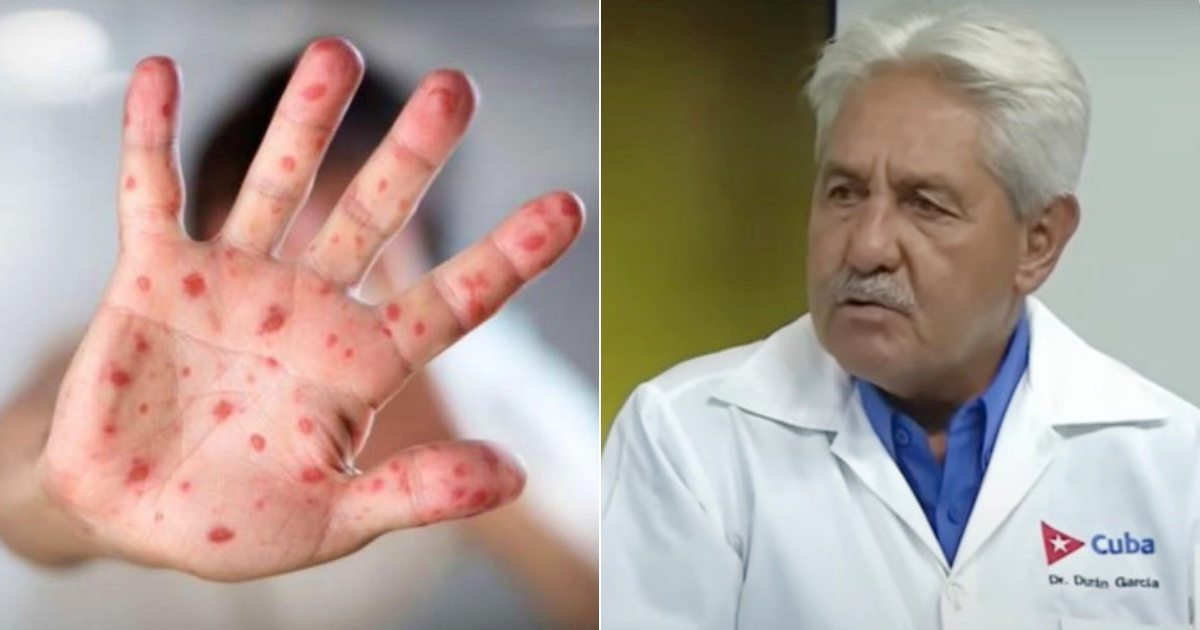
The Ministry of Public Health (MINSAP) of Cuba reported this Wednesday that no cases of the clade Ib variant of Mpox - also known as "monkeypox" - have been detected following the global emergency declared by the World Health Organization (WHO).
Francisco Durán García, national director of Hygiene and Epidemiology of MINSAP, said in statements to Granma that Cuba maintains "an epidemiological surveillance to immediately detect any suspicion" of the disease in Cuba.
Durán pointed out that in 2022 the island confirmed eight cases of the virus, which were "controlled in a timely manner."
The Cuban expert emphasized that what is essential is "monitoring and symptomatic treatment, because there are no specific medications for its elimination."
He also pointed out that the virus generally does not cause death, unless "other complications" occur.
The specialist specified that the way the disease is transmitted is through direct or indirect contact with blood, bodily fluids, or skin lesions. He added that it also spreads through sexual relations.
However, unlike other sexually transmitted infections, in this case, it cannot be prevented solely by the use of a condom, as it is also transmitted through body-to-body contact.
Regarding the symptoms, he specified that it usually starts with fever, muscle pain, headaches, among others, including a bothersome rash on the skin of the hands, the soles of the feet, the groin, and the genital areas. It can last between two and four weeks.
The disease -caused by a virus from the Orthopoxvirus genus- can be transmitted from animals to humans or through direct and intense contact with individuals who have symptoms.
The expert urged the Cuban population to seek medical attention immediately at any sign of symptoms to receive an appropriate and timely diagnosis.
The clade Ib variant can be easily transmitted through close contact between two individuals, without the need for sexual contact, and is considered more dangerous than the one from 2022, which at the time led to another similar alert, lifted after its spread was contained and the situation was deemed under control.
Mpox was first described in humans in 1970 in the Democratic Republic of Congo. Since then, most reported cases have come from the Congo basin and West Africa.
Complex epidemiological situation in Cuba
Despite the fact that Cuba is currently free from monkeypox, this week Dr. Francisco Durán described the current epidemiological situation in the country as "complex" due to the co-circulation of multiple viruses, including influenza, dengue, and the Oropouche virus.
In statements quoted by the Cuban News Agency, the specialist confirmed that the Oropouche virus has seen a considerable increase in cases; and explained that although it was considered relatively benign, recent experiences have shown that this disease can cause serious complications in some patients.
Durán noted that there have been reports of patients who have experienced up to three relapses in a single month, experiencing recurrent symptoms of general malaise and fever.
He added that continuous surveillance over these viruses is maintained, and preventive and control measures have been intensified to mitigate the spread and effectively treat those affected.
However, he recently acknowledged that the country did not have resources to combat the mosquito through fumigation campaigns, which further complicated the epidemiological situation in Cuba.
What do you think?
COMMENTFiled under: